April 8, 2019 •
North Carolina House Files Campaign Reform Bills
The North Carolina House has introduced two bills to reform campaign finance. House Bill 512 submits a referendum to voters urging Congress to pass an amendment to the Constitution of the United States declaring that constitutional rights belong to individuals […]
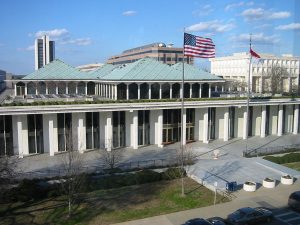 The North Carolina House has introduced two bills to reform campaign finance.
The North Carolina House has introduced two bills to reform campaign finance.
House Bill 512 submits a referendum to voters urging Congress to pass an amendment to the Constitution of the United States declaring that constitutional rights belong to individuals and not corporations or entities.
The referendum also states that unlimited spending of money on political campaign contributions is not constitutionally protected free speech.
House Bill 510 requires primary elections of Supreme Court, court of appeals, superior, and district court judges to be nonpartisan judicial elections.
The bill also establishes the North Carolina Public Campaign Fund as an alternative source of campaign financing for candidates that demonstrate public support and voluntarily accept strict fund raising and spending.
The fund will be a special, dedicated, non-lapsing, non-reverting fund that participating candidates can use to receive campaign funds.
However, candidates will have higher restrictions on how much money they can receive in contributions and how much they can expend on their campaign.
If passed, House Bill 510 will become effective January 1, 2020.
A special election will take place on August 20 to fill a vacancy in House District 19. Rep. Dwight Loftis resigned to become a member of the state Senate, representing District 6. Loftis had represented District 19 for 23 years.
 A special election will take place on August 20 to fill a vacancy in House District 19.
A special election will take place on August 20 to fill a vacancy in House District 19.
Rep. Dwight Loftis resigned to become a member of the state Senate, representing District 6.
Loftis had represented District 19 for 23 years.
Senate Bill 3, relating to the Campaign Reporting Act, was signed by Gov. Michelle Lujan Grisham on Thursday, April 4, 2019. The bill amends several provisions of campaign finance law, including definitions related to elections cycles, penalties for violating campaign […]
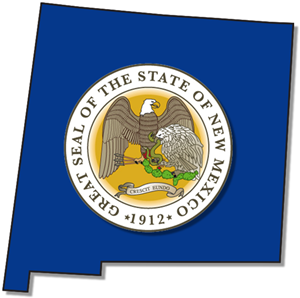 Senate Bill 3, relating to the Campaign Reporting Act, was signed by Gov. Michelle Lujan Grisham on Thursday, April 4, 2019.
Senate Bill 3, relating to the Campaign Reporting Act, was signed by Gov. Michelle Lujan Grisham on Thursday, April 4, 2019.
The bill amends several provisions of campaign finance law, including definitions related to elections cycles, penalties for violating campaign finance law, and independent expenditure reporting.
The bill also requires a person making an independent expenditure in an amount exceeding $1,000 in non-statewide elections and $3,000 in statewide elections to file a report with the secretary of state within specified time periods.
The report must include the name and address of the person who made the independent expenditure, the name and address of the person to whom the independent expenditure was made, the amount, date and purposes of the independent expenditure, and the source of the contributions used to make the independent contribution.
Additionally, contributions to most candidates and political committees will be limited to $5,000 per election cycle unless those contributions are from a candidate’s own personal funds or made to a political committee and used only to make independent expenditures.
Contributions to gubernatorial candidates will be limited to two times the contribution limit during a primary or a general election cycle.
The bill will become effective on July 1, 2019.
April 5, 2019 •
Idaho Governor Signs Campaign Finance Law
Gov. Brad Little signed Senate Bill 1113 on April 3, amending state campaign finance law, effective January 1, 2020. The bill revises the definitions of candidate, election, electioneering communication, political committee, and public office. Senate Bill 1113 raises the registration […]
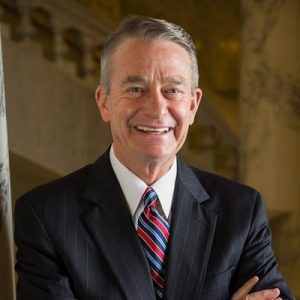 Gov. Brad Little signed Senate Bill 1113 on April 3, amending state campaign finance law, effective January 1, 2020.
Gov. Brad Little signed Senate Bill 1113 on April 3, amending state campaign finance law, effective January 1, 2020.
The bill revises the definitions of candidate, election, electioneering communication, political committee, and public office.
Senate Bill 1113 raises the registration threshold for political committees from $500 to $1000 while providing for a special provision for local elections and measures.
The bill requires candidates and political committees to file statements on a monthly basis during election years and annually during non-election years.
Senate Bill 1113 also amends late filing fees to accrue 48 hours after the deadline and requires the secretary of state or county clerk to notify the person within 24 hours of the missed filing deadline.
April 5, 2019 •
Alabama Special Election Called for State House District 74
A special election has been called for Alabama House of Representatives in District 74. Gov. Kay Ivey called the special election to fill the vacancy left by the tragic passing of State Rep. Dimitri Polizos. A special primary election will […]
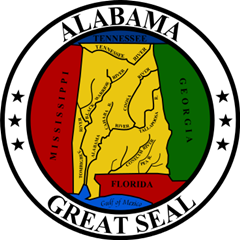 A special election has been called for Alabama House of Representatives in District 74.
A special election has been called for Alabama House of Representatives in District 74.
Gov. Kay Ivey called the special election to fill the vacancy left by the tragic passing of State Rep. Dimitri Polizos.
A special primary election will be held on June 11, 2019, and the special general election will be held on August 27, 2019, provided a runoff is not required.
If a runoff is required, the special runoff election will be held on August 27, 2019, and the special general election will be held on November 12, 2019.
April 5, 2019 •
News You Can Use Digest – April 5, 2019
National: What Is ALEC? ‘The Most Effective Organization’ for Conservatives, Says Newt Gingrich USA Today – Yvonne Wingett Sanchez and Rob O’Dell | Published: 4/4/2019 The American Legislative Exchange Council (ALEC) became the nation’s best-known so-called model bill factory over […]

National:
What Is ALEC? ‘The Most Effective Organization’ for Conservatives, Says Newt Gingrich
USA Today – Yvonne Wingett Sanchez and Rob O’Dell | Published: 4/4/2019
The American Legislative Exchange Council (ALEC) became the nation’s best-known so-called model bill factory over its four decades by providing more than fill-in-the-blank legislation. The industry-sponsored group has weathered controversy and flourished because it also offers conservative Republican elected officials a social network, access to campaign donors, and a blueprint for how to accelerate their political careers. The networking takes place at ALEC’s annual meetings, where the group fetes and entertains lawmakers and their families. Relationships are forged over drinks and dinners, where lawmakers sit alongside conservative luminaries and corporate chiefs. By the end of each ALEC conference, attendees leave motivated to evangelize for conservative policies and equipped with ready-made legislation.
Federal:
GAO: One-third of lobbying disclosures failed to include political contributions
The Hill – Alex Gangitano | Published: 3/29/2019
One-third of lobbyists’ disclosures do not include political contributions and one-fifth do not include previous jobs in government, a new Government Accountability Office (GAO) report finds. The GAO audited compliance with the Lobbying Disclosure Act, which requires a person to register as a lobbyist if lobbying activities constitute at least 20 percent of their time working for a client. The watchdog examined lobbying disclosure (LD-2) reports and political contribution (LD-203) reports filed during the third and fourth quarter of 2017 and the first and second quarter of 2018. It also conducted interviews with lobbyists for the study.
Some on Mueller’s Team Say Report Was More Damaging Than Barr Revealed
MSN – Nicholas Fandos, Michael Schmidt, and Mark Mazzetti (New York Times) | Published: 4/3/2019
Some members of special counsel Robert Mueller’s team have reportedly complained that the evidence they uncovered of obstruction of justice during their investigation was stronger than what U.S. Attorney General William Barr suggested. In his four-page letter to Congress, Barr wrote that Mueller did not uncover evidence to conclude the Trump campaign colluded with Moscow to influence the 2016 election. Barr added that Mueller did not make a definitive conclusion on whether Trump obstructed justice. But Barr and Deputy Attorney General Rod Rosenstein decided Mueller did not provide sufficient evidence of obstruction to pursue it. The summary noted Mueller did not exonerate the president on the obstruction matter. Some members of Mueller’s team felt Barr should have included more information from their own summaries of the probe.
From the States and Municipalities:
California: Judge Bars Former Ethics Panel Member from Running for L.A. City Council
Los Angeles Times – Emily Alpert Reyes | Published: 3/28/2019
A judge ruled that Former Los Angeles Ethics Commission member Serena Oberstein is barred from running for a city council seat that is up for grabs this summer. The legal battle revolved around a section of the City Charter that restricts ethics commissioners from running for any city office “concerning which the commission has made a decision during the term of the commissioner” – a ban that applies for two years after the end of their terms. In his ruling, Superior Court Judge James Chalfant wrote that voting to impose fines on two people who ran unsuccessfully in the past to represent Council District 12 made Oberstein ineligible to run for that seat, since “these decisions concern the very office for which Oberstein seeks election.”
Illinois: Lori Lightfoot Elected Chicago Mayor, Making Her the First African-American Woman to Lead the City
Chicago Tribune – Bill Ruthhart | Published: 4/2/2019
Former federal prosecutor Lori Lightfoot won a resounding victory to become both the first African-American woman and openly gay person elected mayor of Chicago. After waging a campaign focused on upending the vaunted Chicago political machine, Lightfoot dismantled one of its major cogs by dispatching Cook County Board President Toni Preckwinkle, whose candidacy had been hobbled in part by an anti-incumbent mood among voters and an ongoing federal corruption investigation at City Hall. Both self-styled progressives, Preckwinkle and Lightfoot did not disagree much on the issues. As a result, the race largely boiled down to change versus experience.
Indiana: Casino Boss Treated Holcomb to Private Flights with Lucrative Gambling Deal on the Line
Indianapolis Star – Kaitlin Lange and Tony Cook | Published: 3/28/2019
An Indiana casino magnate last year treated Gov. Eric Holcomb to two private-jet flights and directed six-figure sums to Holcomb’s biggest 2016 campaign donor, all while pushing for changes to the state’s gaming laws that would benefit his new business. Rod Ratcliff, chief Executive Officer of Spectacle Entertainment, flew Holcomb to meetings in Colorado and Arizona that were hosted by the source of that campaign money, the Republican Governors Association. The flights gave Ratcliff and his business partners hours of exclusive access to the governor, who will have final say over their plans to move two Gary casinos to more lucrative locations. One of the flights was just a day before Ratcliff announced plans to acquire those two casinos.
Kentucky: Lobbyists Can’t Donate to Candidates but Give Big to Parties – Especially the GOP
Louisville Courier Journal – Tom Loftus | Published: 4/3/2019
State law forbids a lobbyist from donating to the campaigns of candidates for the Kentucky General Assembly. But lobbyists can give to the state political parties, which use much of that money to support their candidates for the Legislature. An examination of the state Republican Party’s finance reports shows ta relatively small group of lobbyists provide a significant and steady cash flow, even for an organization with a growing number of big donors, as it has gained total control of the two chambers of the Legislature and the governor’s office.
Maryland: Baltimore Mayor Pugh to Take Leave of Absence in Midst of ‘Healthy Holly’ Book Controversy
MSN – Ian Duncan and Yvonne Wenger (Baltimore Sun) | Published: 4/1/2019
Baltimore Mayor Catherine Pugh announced she is taking an indefinite leave of absence for health reasons, just as a political scandal intensifies over what critics call a “self-dealing” book-sales arrangement that threatens her political career. Kaiser Permanente disclosed it paid $114,000 for about 20,000 copies of Pugh’s self-published paperbacks for children featuring a young girl named Healthy Holly aimed at promoting exercise and good nutrition. In 2017, the city’s spending board, which Pugh controls, awarded a $48 million contract to Kaiser to provide health benefits to city employees. Since 2011, Pugh has received $500,000 selling her illustrated books to the University of Maryland Medical System while she served on its board.
Missouri: Federal Investigation Plunges St. Louis County into Chaos
St. Louis Post-Dispatch – Jacob Barker and Jeremy Kohler | Published: 3/30/2019
The sudden delivery of wide-ranging subpoenas to St. Louis County, signaling an investigation by the U.S. attorney into the activities of County Executive Steve Stenger’s administration, has plunged the county, and the future of the region’s government, into chaos. Stenger’s ability to lead the county government, already limited by his toxic relationship with county lawmakers, now lies wounded. County employees openly speculate about who might be under investigation and for what conduct. Some county employees are concerned for their jobs, and all attention will shift to producing records to satisfy the subpoena.
New Jersey: Top Guns. These Are the Highest-Paid Lobbyists in N.J.
Newark Star Ledger – Ted Sherman (NJ Advance Media) | Published: 4/2/2019
Spending on lobbying in New Jersey hit $89.4 million last year, a decline after a record year for spending in 2017. But the number of registered lobbyists in the state, and how much they made, increased over the past year. Overall, 35 lobbyists made $200,000 or more, but many likely earned even more than what was reported. Lobbyists in New Jersey are not required to account for all their income. They do not report fees from lobbying local officials, and they do not have to list fees if their firm provides public relations advice to a client. Lobbyist Dale Florio described his role as “getting you in the door so you can make your case.” He said corporations and unions have thousands of members to make their voices heard to state officials. But for others, Florio said lobbying offers another avenue to make points to elected officials.
New Mexico: Governor Signs Bill for Ethics Commission
Santa Fe New Mexican – Andrew Oxford | Published: 3/28/2019
New Mexico Gov. Michelle Lujan Grisham signed into law a bill setting detailed guidelines for a new state ethics commission. Voters authorized an ethics commission by statewide ballot last year in the wake of a string of high-profile public corruption scandals. That vote still left lawmakers to determine the commission’s investigative powers and the extent of public access to documents and proceedings. Work in assembling the commission begins July 1, with a six-month startup period. The commission will have oversight of state officials and employees as well as candidates for state offices, lobbyists, and state contractors. New Mexico had been one of only six states without an independent ethics commission.
New York: In State Budget, More on Voting, Little on Ethics, and Half-Baked Campaign Finance Reform
Gotham Gazette – Samar Khurshid | Published: 4/2/2019
Government reform advocates are disappointed by what they see as half-measures on campaign finance reform and the exclusion of broader improvements to state procurement processes and ethics reforms in the New York state budget. The budget deal included additional measures and funding for voting, election, and campaign finance reforms approved in previous months. The headline, though, was the compromise to mandate a binding commission that is meant to create a public financing program for state elections and must issue a report by December 1. One proposal that was approved prohibits lobbyists, PACs, labor unions, and an individual registered as an independent expenditure committee from giving loans to candidates and political committees.
North Carolina: NC GOP Chairman, Major Political Donor Indicted in Alleged Bribery Scheme
WRAL – Travis Fain | Published: 4/2/2019
A federal grand jury indicted North Carolina Republican Party Chairperson Robin Hayes, along with major Republican campaign donor Greg Lindberg and two of his associates, on conspiracy and bribery charges for their attempts to influence state Insurance Commissioner Mike Causey. The alleged scheme would have traded more than $1 million in political contributions in exchange for regulatory help at the Insurance Department. The indictment mentions another person was in contact with Lindberg and Causey – “Public Official A.” Lindberg made a $150,000 contribution in February 2018 to a committee supporting the official at the same time Lindberg allegedly asked the politician to help sway Causey. A joint fundraising committee for U.S. Rep. Mark Walker logged a $150,000 donation from Lindberg on February 17, 2018.
Pennsylvania: Vestige of the Past, State House’s ‘Lobbyist Room’ Vanishes
AP News – Marc Levy | Published: 3/30/2019
The “lobbyist room” at the Pennsylvania House is now off limits to lobbyists. For decades, lobbyists in the room could watch floor proceedings on television, print out copies of legislation, and send messages to lawmakers in the chamber through a House page who was effectively assigned full-time to this task during floor sessions. The House’s chief administrative official said he decided the room is not appropriate and shut it down. The move comes after Gov. Tom Wolf challenged lawmakers last year to adopt the kind of gift ban that he imposed on the executive branch. Still, it seems to signal no broader effort to hold lobbyists at arm’s length, and the perk was not dramatically different than lobbyists’ accommodations in some other Capitols.
Virginia: ‘It Just Went Poof’: The strange aftermath of Virginia’s cascade of political scandals
MSN – Campbell Robertson (New York Times) | Published: 4/1/2019
In the space of a week in February, the public was stunned by revelations about each of the three highest statewide elected officials in North Carolina: the racist photograph in Gov. Ralph Northam’s medical school yearbook; accusations of sexual assault against Lt. Gov. Justin Fairfax; and Attorney General Mark Herring’s appearance in blackface at a party in college. Protesters and news crews swarmed the statehouse. Calls for resignations came from fellow Virginia Democrats, Republicans, and even 2020 presidential candidates. And then? “It just went poof – it’s like it never happened,” said Richmond resident Natalie Draper. Virginians have various theories as to how this surreal normalcy set in.
April 4, 2019 •
Colorado Governor Signs Electioneering Communications Bill
Gov. Jared Polis signed Senate Bill 68 on April 1, expanding disclosure of electioneering communications. For purposes of campaign finance disclosure, the bill expands the definition of electioneering communication in the Fair Campaign Practices Act to include any communication that […]
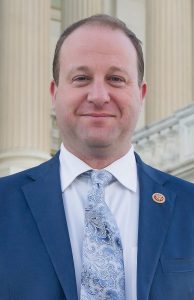 Gov. Jared Polis signed Senate Bill 68 on April 1, expanding disclosure of electioneering communications.
Gov. Jared Polis signed Senate Bill 68 on April 1, expanding disclosure of electioneering communications.
For purposes of campaign finance disclosure, the bill expands the definition of electioneering communication in the Fair Campaign Practices Act to include any communication that is broadcast, printed, mailed, delivered, or distributed between the primary election and the general election.
The bill also requires any person who expends $1,000 or more per calendar year on electioneering communications or regular biennial school electioneering communications to state in the communication the name of the person making the communication in accordance with existing statutory requirements for communication constituting an independent expenditure.
The bill will take effect on August 2, provided adjournment sine die of the General Assembly is on May 3.
If, however, a referendum petition is filed against the bill, the bill would not take effect unless approved in the November 2020 general election.
April 4, 2019 •
Maine Sets Special Election to Fill House District 45
A special election will take place on June 11 to fill a vacancy in House District 45. Rep. Dale Denno, who was re-elected for a second term in November, has resigned for health reasons. The elected candidate will serve the […]
 A special election will take place on June 11 to fill a vacancy in House District 45.
A special election will take place on June 11 to fill a vacancy in House District 45.
Rep. Dale Denno, who was re-elected for a second term in November, has resigned for health reasons.
The elected candidate will serve the remainder of Denno’s term, which would have ended in December 2020.
April 4, 2019 •
Thursday’s LobbyComply News Roundup
Campaign Finance National: “At the Federal Election Commission, No Watchdog for the Watchdogs” by Dave Leventhal for Center for Public Integrity Connecticut: “SEEC Says Campaigns Can’t Pay for Child Care” by Mark Pazniokas for Connecticut Mirror Elections National: “Liberals Infuriated […]
 Campaign Finance
Campaign Finance
National: “At the Federal Election Commission, No Watchdog for the Watchdogs” by Dave Leventhal for Center for Public Integrity
Connecticut: “SEEC Says Campaigns Can’t Pay for Child Care” by Mark Pazniokas for Connecticut Mirror
Elections
National: “Liberals Infuriated by Pro-Incumbent House Dem Policy” by Reid Wilson for The Hill
National: “Trump’s Takeover of the Republican Party Is Almost Complete” by Alexander Burns and Jonathan Martin for New York Times
Illinois: “Lori Lightfoot Elected Chicago Mayor, Making Her the First African-American Woman to Lead the City” by Bill Ruthhart for Chicago Tribune
Ethics
National: “An Intruder Brought Malware to Mar-a-Lago, Which Experts Have Warned Was Vulnerable” by Isaac Stanley-Becker (Washington Post) for MSN
National: “House Panel Votes to Authorize Subpoenas to Obtain Full Mueller Report” by Rachael Bade (Washington Post) for San Jose Mercury News
California: “Years After FBI Probe, SF Pay-to-Play Case Ends in Plea Deals” by Michael Barber for San Francisco Examiner
North Carolina: “NC GOP Chairman, Major Political Donor Indicted in Alleged Bribery Scheme” by Travis Fain for WRAL
Washington D.C.: “Jack Evans Scandal Revives Push to Ban Outside Jobs for D.C. Council Members” by Fenit Nirappil for Washington Post
March 29, 2019 •
South Dakota Governor Signs Campaign Finance Bills
Gov. Kristi Noem recently signed several campaign finance bills into law. House Bill 1189 provides any person who is subject to a Class 2 misdemeanor for campaign finance violations up to seven days to cure the violations prior to having […]
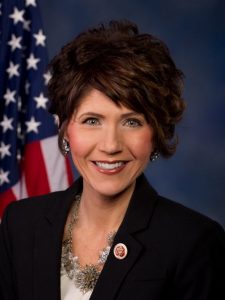 Gov. Kristi Noem recently signed several campaign finance bills into law.
Gov. Kristi Noem recently signed several campaign finance bills into law.
House Bill 1189 provides any person who is subject to a Class 2 misdemeanor for campaign finance violations up to seven days to cure the violations prior to having a charge brought against him or her.
House Bill 1092 clarifies reporting requirements for candidates.
House Bill 1143 states all political action committees established, financed, maintained, or controlled by the same person or entity are affiliated and share a single contribution limit both with respect to contributions made and contributions received.
Senate Bill 114 requires any contribution from a person who is an unemancipated minor to be deducted from the total contribution permitted by the unemancipated minor’s custodial parent or parents.
The bills become effective July 1.
March 29, 2019 •
News You Can Use Digest – March 29, 2019
Federal: Barr’s Declaration on Trump Puts Justice Dept. Back in Political Crucible MSN – Charlie Savage, Mark Mazzetti, and Katie Benner (New York Times) | Published: 3/25/2019 Attorney General William Barr’s decision to declare that evidence fell short of proving […]

Federal:
Barr’s Declaration on Trump Puts Justice Dept. Back in Political Crucible
MSN – Charlie Savage, Mark Mazzetti, and Katie Benner (New York Times) | Published: 3/25/2019
Attorney General William Barr’s decision to declare that evidence fell short of proving President Trump illegally obstructed the Russia inquiry was an extraordinary outcome to a narrative that spanned nearly two years. Robert Mueller was appointed as special counsel to remove the threat of political interference from an investigation involving the president, but he reached no conclusion on the key question of whether Trump committed an obstruction-of-justice offense. Barr stepped in to make the determination, bringing the specter of politics back into the case. Senior Justice Department officials defended his decision as prudent and within his purview, but it reignited a debate about the role of American law enforcement in politically charged federal investigations.
‘No PAC Money’ Pledges Leave Corporations in a Partisan Bind
Roll Call – Kate Ackley | Published: 3/21/2019
It is not just the number of members of Congress pledging not to accept money from PACs for corporations and trade groups (more than 50 so far) that is a problem, but their party affiliation – almost entirely Democratic. If the trend spreads into the 2020 campaign cycle, it could put companies and associations in a bind. Many of the top PACs connected to businesses and trade associations maintain roughly balanced giving ratios and some of them have enshrined such practices. “Most PACs pride themselves on being bipartisan and supporting candidates who are understanding of their issues, so they can engage in a policy conversation. There’s a real fear of just losing that balanced approach,” said Kristin Brackemyre of the Public Affairs Council.
From the States and Municipalities:
California: A State Lawmaker Borrowed Nearly a Half-Million Dollars to Buy a Home. You Might Have Voted for Her Lender.
CALmatters – Matt Levin | Published: 3/26/2019
To buy a house, a state legislator received a $430,000 personal loan from a former member of Congress from Orange County, an arrangement that some legal experts labeled unusual, but that both politicians said was not improper. State Assemblyperson Sharon Quirk-Silva borrowed the sum from former U.S. Rep. Loretta Sanchez, an unsuccessful 2016 U.S. Senate candidate, in the fall of 2017. Quirk-Silva and her husband repaid Sanchez with interest. While California law bans state and local elected officials from borrowing money from each other, nothing appears to prohibit the arrangement Quirk-Silva struck with Sanchez, who did not hold elected office at the time. In late 2018, Sanchez would announce her candidacy for a seat on the Orange County Board of Supervisors, going on to lose.
Colorado: Lawmakers Take Aim at Disclosure Loopholes in Colorado Lobbying Laws
Colorado Sun – Sandra Fish | Published: 3/25/2019
Colorado lawmakers have introduced a measure to eliminate loopholes in lobbying laws and require more disclosure to the public, part of an effort to address long-standing concerns about transparency. House Bill 1248 would require more frequent reporting by lobbyists what bills they were hired to follow, and the position taken by their clients. Lobbyists would need to file any changes in their positions on legislation within 48 hours during the session. Now, those updates are required only once a month. The legislation also aims to close loopholes that some lobbyists appear to use to avoid reporting income from clients.
Connecticut: Jon Lender: Lobbyists pay $13,000 in fines connected to tech schools controversy
Hartford Courant – Jon Lender | Published: 3/22/2019
The Office of State Ethics collected $13,000 in fines from the lobbying and consulting firm Kozak & Salina and one of its owners. The firm had a contract with the Connecticut Technical High School System (CTHSS) from 2014 to 2016 to provide “external relations and strategic consulting services,” and a similar contract for 2015 with the lighting fixture company Penn Globe. Kozak & Salina relayed communications between Penn Globe and CTHSS and charged both for the same services. So, when the lobbying firm submitted invoices to the state to obtain payment, it was getting paid twice, said Carol Carson, executive director of the ethics office. In addition to a $10,000 fine against his firm, David Kozak paid $3,000 for failing to file required registration and disclosure statements about his work for Penn Globe.
District of Columbia: As D.C. Leaders Tout Reforms, Latest Ethics Scandal Evokes City’s History of Corruption
Washington Post – Paul Schwartzman | Published: 3/23/2019
District of Columbia Councilperson Jack Evans admitted he violated the council’s code of conduct when he repeatedly used his government email account to offer potential clients the benefit of his political connections and the influence he amassed as a lawmaker and chairperson of the Washington Metropolitan Area Transit Authority. Civic groups chided the council as being too lenient when it reprimanded Evans rather than strip him of powerful committee posts. Reform activist Bryan Weaver said Evans’ actions, and the council’s response, evoke the worst aspects of the city’s history of official misconduct, one that has triggered periodic crises engulfing mayors, council members, government appointees, and employees.
Florida: ‘As American as Apple Pie’: How Miami commissioner’s aunt became a high-priced lobbyist
Miami Herald – David Smiley and Joey Flechas | Published: 3/26/2019
Some companies have chosen not to hire Barbara Hardemon as a lobbyist due to concerns about the perception of undue influence as she is the aunt of Miami City Commissioner Keon Hardemon. But in the years since his 2013 election, the commissioner’s aunt has emerged as a closer for some of Miami’s biggest businesses. Barbara Hardemon’s lobbying shop is allowed under state and local laws, which prohibit elected officials and their immediate family from profiting personally off the contracts they oversee but say nothing about their extended family. Her lucrative rise from occasional City Hall lobbyist to 11th-hour power broker has blurred the lines between negotiations and nepotism.
Florida: Ethics Board Aims to Put Teeth in Code, Seeks Greater Oversight of Tallahassee City Hall
Tallahassee Democrat – Jeff Burlew | Published: 3/23/2019
The Tallahassee Independent Ethics Board is finalizing proposals that could expand its oversight of City Hall and strengthen an ethics code that has long been seen as weak and toothless. The board currently has jurisdiction over only nine people. But proposed changes would extend its jurisdiction to cover all employees who work in procurement or are required by state law to file financial disclosures. The proposals include giving the board the power to issue subpoenas and take sworn testimony, a ban on all gifts no matter their value, and higher fines for lobbyists who try to influence city officials without registering and disclosing their clients.
Iowa: Iowa Treasurers End Scholarships Amid Ethics Law Inquiries
AP News – Ryan Foley | Published: 3/27/2019
County treasurers in Iowa canceled a scholarship program that benefited their relatives and employees amid criticism the vendor-funded awards were illegal gifts under state ethics law. The program consisted of four, $500 scholarships that were awarded each year to the college-bound children and grandchildren of county treasurers and their staffs. The money came from two companies that do extensive business with treasurers: GovTech Services, which runs the website that 88 counties use to collect property and motor vehicle taxes, and SRI Inc., which operates tax auctions for dozens of counties. Since the program’s inception, critics have worried the scholarships violated the gift law, which bars public employees and their immediate relatives from accepting money from contractors.
Maryland: Maryland House of Delegates Votes Unanimously to Reprimand Jalisi Over ‘Abusive’ Treatment of His Staff
Baltimore Sun – Luke Broadwater | Published: 3/27/2019
The Maryland House voted unanimously to publicly reprimand Del. Jay Jalisi for “an ongoing pattern of bullying and abusive workplace behavior.” The delegates voted after receiving a report outlining the investigation from the Joint Committee on Legislative Ethics that alleged Jalisi forced his staff to work overtime without pay, bullied others, got kicked out of a hotel, and made a staffer stand in the delegate’s office and repeat: “I am incompetent. I am incompetent.” This is not the first time Jalisi’s actions have been scrutinized. In 2015, a Baltimore County judge issued a protective order barring Jalisi from contact with his then-teenage daughter.
Massachusetts: House Proposal for Caucus Funding Left Out of Budget Bill – but Caucuses May Still Fundraise
MassLive.com – Shira Schoenberg | Published: 3/25/2019
A controversial Massachusetts House proposal to let caucuses raise private money did not make it into the final version of a budget bill. But House leaders say that under their internal rules, caucuses will still be able to raise private money as long as they comply with ethics rules, which bar lobbyists from giving and require any gift of over $50 to be approved by House counsel to avoid conflicts-of-interest. When the House passed its rules in January, members approved a rule that would let caucuses raise money from public or private sources. But some advocates for open government worried this could create a legislative “slush fund” where special interests with business before the Legislature could donate to lawmakers with no transparency.
New Jersey: Dark Money Disclosure Bill Advanced to Gov. Phil Murphy’s Desk
Burlington County Times – David Levinsky | Published: 3/26/2019
Legislation to require so-called dark money groups operating in New Jersey to reveal their donors was sent to Gov. Phil Murphy. The bill has undergone several changes after being approved by the Senate, but it would still mandate the disclosure of donors who give more than $10,000 to nonprofit 501(c)4 groups that are not currently subject to disclosure requirements if they engage in political activities, lobbying, or campaigning. It would also mandate the disclosure of expenses of more than $3,000 and would also boost contribution limits to state and county political committees. Those groups are already subject to strict reporting requirements but have been usurped by “dark-money” groups in recent years.
Pennsylvania: GOP Legislator Prays to Jesus for Forgiveness Before State’s First Muslim Woman Swears In
MSN – Reis Thebault (Washington Post) | Published: 3/26/2019
Movita Johnson-Harrell brought 55 guests to her swearing in as the Pennsylvania Legislature’s first Muslim woman. Thirty-two of them were Muslim. She later for the General Assembly to censure State Rep. Stephanie Borowicz, who delivered the opening prayer to begin the legislative session day. By the time she said “Amen,” Borowicz had invoked Jesus 13 times. She mentioned “Lord” and “God” another six times each and referenced “The Great I Am” and “the one who’s coming back again, the one who came, died, and rose again on the third day.” As the prayer reached a crescendo, at least one member shouted objections. Afterward, the protests only grew louder.
West Virginia: Governor Signs Bills Raising Campaign Contribution Limits, Cutting Coal Tax
Beckley Register-Herald – Erin Beck | Published: 3/27/2019
West Virginia Gov. Jim Justice signed into law a bill that increases the limits on campaign contributions by individuals. Senate Bill 622 increases the limits to $2,800 for candidates, $5,000 for PACs, and up to $10,000 per year for party committees. Current limits for each category are set at $1,000. Julie Archer of the West Virginia Citizen Action Group said bill does nothing about “dark money.” She said Democrats attempted to amend the bill at least twice to require disclosures by donors that “funnel” money through groups.
Wisconsin: Judge Bocks GOP Lame-Duck Laws Limiting Tony Evers’ Powers; Evers Seeks to Remove Wisconsin from Obamacare Challenge
madison.com – Mark Sommerhauser | Published: 3/21/2019
A judge blocked several actions by Wisconsin’s Republican-controlled Legislature to limit the power of its incoming governor, Democrat Tony Evers, and preserve policies implemented by his predecessor, Scott Walker. The Legislature acted in what is known as an “extraordinary session,” called with little notice. It lasted two days and one night and sparked heated protests. The three bills enacted during the sessions were extraordinary in breadth. One of them gave the Legislature powers usually and exclusively reserved for the attorney general, such as approving legal actions by the state. At the time of the session, Assembly Speaker Robin Vos stated its purpose plainly: “We are going to have a very liberal governor who is going to enact policies that are in direct contrast to what many of us believe in,” Vos said.
March 27, 2019 •
Nanaimo–Ladysmith (British Columbia) By-Election Scheduled for May 6
On May 6, a by-election will be held for the electoral district of Nanaimo–Ladysmith (British Columbia) to fill a vacancy in the Canadian House of Commons. On January 7, the Chief Electoral Officer of Canada, Stéphane Perrault, had received official […]
 On May 6, a by-election will be held for the electoral district of Nanaimo–Ladysmith (British Columbia) to fill a vacancy in the Canadian House of Commons.
On May 6, a by-election will be held for the electoral district of Nanaimo–Ladysmith (British Columbia) to fill a vacancy in the Canadian House of Commons.
On January 7, the Chief Electoral Officer of Canada, Stéphane Perrault, had received official notice from the Speaker of the House of Commons that the seat became vacant following the resignation of Sheila Malcolmson, who resigned on January 2 to run in a provincial byelection.
On March 24, Elections Canada declared the May election date and announced the opening of its local office in Nanaimo-Ladysmith.
March 27, 2019 •
Wednesday’s LobbyComply News Roundup
Campaign Finance Idaho: “Campaign Finance Overhaul Passes House” by Nathan Brown for Idaho Falls Post Register Massachusetts: “House Proposal for Caucus Funding Left Out of Budget Bill – but Caucuses May Still Fundraise” by Shira Schoenberg for MassLive.com Massachusetts: “Mayor […]
 Campaign Finance
Campaign Finance
Idaho: “Campaign Finance Overhaul Passes House” by Nathan Brown for Idaho Falls Post Register
Massachusetts: “House Proposal for Caucus Funding Left Out of Budget Bill – but Caucuses May Still Fundraise” by Shira Schoenberg for MassLive.com
Massachusetts: “Mayor Walsh Has an Effective Fund-Raising Firm; It Employs His Girlfriend” by Matt Stout for Boston Globe
New Jersey: “Dark Money Disclosure Bill Advanced to Gov. Phil Murphy’s Desk” by David Levinsky for Burlington County Times
Oregon: “Oregon Campaign Finance Reformers Focus On ‘Dark Money’” by Jeff Mapes for Oregon Public Broadcasting
Elections
Florida: “Florida Agreed to Let Felons Vote. Now Republicans Are Trying to Limit Who Is Eligible” by Amy Gardner for Washington Post
Ethics
National: “Barr’s Declaration on Trump Puts Justice Dept. Back in Political Crucible” by Charlie Savage, Mark Mazzetti, and Katie Benner (New York Times) for MSN
Maryland: “Ethics Committee Recommends Reprimand of Baltimore County Del. Jay Jalisi Over ‘Toxic’ Work Environment” by Pamela Wood and Luke Broadwater for Baltimore Sun
Redistricting
National: “High Court Questions Courts’ Role in Partisan Redistricting” by Mark Sherman for AP News
Senate Bill 1500 has made it Gov. Phil Murphy’s desk after being introduced in early 2018. The bill requires committees to report contributions in excess of $10,000 and expenditures in excess of $3,000 to the Election Law Enforcement Commission. Additionally, […]
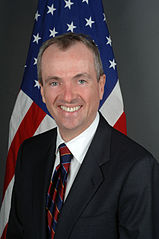 Senate Bill 1500 has made it Gov. Phil Murphy’s desk after being introduced in early 2018.
Senate Bill 1500 has made it Gov. Phil Murphy’s desk after being introduced in early 2018.
The bill requires committees to report contributions in excess of $10,000 and expenditures in excess of $3,000 to the Election Law Enforcement Commission.
Additionally, when the contributor is an individual giving more than $10,000, the committee must disclose the occupation of the individual and the name and mailing address of the individual’s employer.
If signed by the governor, the bill will impact the January 15, 2020, independent expenditure report.
State and Federal Communications, Inc. provides research and consulting services for government relations professionals on lobbying laws, procurement lobbying laws, political contribution laws in the United States and Canada. Learn more by visiting stateandfed.com.

